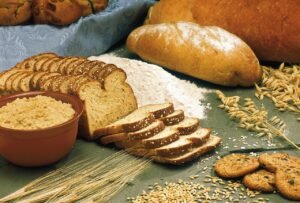Debunking The Lectin Debate: Which Foods To Eat or Not?

The debate over lectins has been growing steadily over the past few years as consumers become more aware of their potential health risks. Lectins are a type of protein found in a variety of foods, including grains, legumes, nuts and seeds. While they have certain health benefits, they have also been linked to a range of serious health conditions such as leaky gut syndrome and digestive issues.
One of the most contentious aspects of the lectin debate is which foods are healthy to eat and which should be avoided. While some experts advocate strictly limiting lectin consumption, others suggest that some lectin-containing foods can be safely eaten in moderation.
When it comes to grains, the majority of experts agree that whole grains are generally considered safe to consume, though it is worth noting that some contain higher levels of lectins than others. For instance, wheat contains more lectins than other grains, so for those looking to minimize their intake, it is best to avoid this grain or at least consume it in moderation. In addition, many experts suggest soaking, fermenting, or sprouting grains before consuming them to reduce lectin content.
Legumes, particularly raw or undercooked legumes, are one of the highest sources of dietary lectins, so it is important to be mindful of how much you eat. If you do consume legumes, it is best to cook them for at least 10 minutes before eating. However, some legumes can also be very beneficial for digestive health and contain high levels of essential vitamins and minerals. Hence, avoiding these foods is not an absolute rule, as you could be depriving yourself of some very important nutrients. In addition, there are other factors that contribute to leaky gut syndrome and other diseases that you have to take into consideration.
Nuts and seeds are also relatively high in lectins, though their levels can be greatly reduced by roasting or boiling before consumption. If avoiding lectins completely, it is best to avoid nut butters and other processed nut products entirely.
Finally, dairy products are often considered safe when it comes to lectins. Dairy products contain very low levels of lectins and are generally thought to be safe to consume in moderation.
In conclusion, while lectins can be potentially harmful, there is no need to completely restrict them from your diet. Eating a balanced diet and being mindful of how you prepare and consume foods can help to minimize the potential health risks associated with lectins. Ultimately, it is important to research individual foods to ensure that you are getting the most benefit from your diet, while also being aware of the potential risks.

Comments